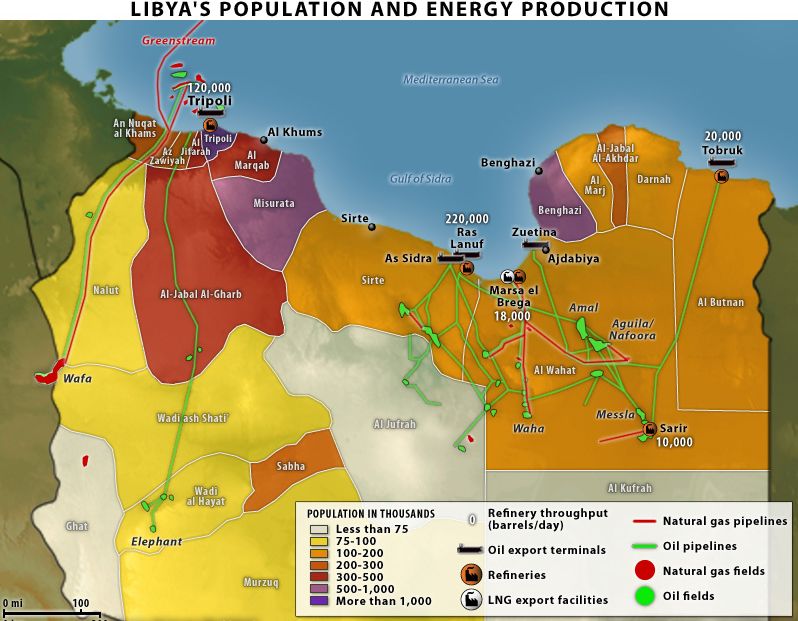NATO
continues to deliberate on how to take over operations in Libya from the United
States, but what’s becoming quite clear is that Europeans themselves are not on
the same page in terms of how to intervene in Libya.
The
fundamental problem for the Europeans is that they didn’t intervene in Libya
for the same reasons to begin with. One thing that does unify all European
countries currently in Libya is that their initial response to the “Arab
Spring,” to the pro-democracy revolutions across the region, has been
relatively tame, and therefore the Libyan intervention is a way to
overcompensate for the initial very tepid responses.
In
France there is another factor, French President Nicolas Sarkozy
is quite unpopular, and he seems to gain a lot of popularity every time he goes
into a foreign affairs overdrive. He did so during the 2008 Georgian War when
he negotiated a peace deal between Russia and Georgia, and he also did that
right after the financial crisis when he called for a new Bretton
Woods. These maneuvers actually help his popularity in France. In London, the
initially bungled response to the unrest in Libya and specifically the
evacuations of British citizens has been part of the reason for why the current
government has been pushing for an aggressive action in Libya. However, France
and the U.K., the two European countries that have been the most vociferous
supporters of an armed intervention in Libya also have different reasons.
For
the U.K. it has to do with energy and specifically the fact that BP will have
to look for new producing fields following their disaster in the Gulf of
Mexico. And for France it has to do with intra-European politics and showing
Germany and the rest of Europe that France still matters, specifically that
France is still a crucial leader in Europe when it comes to military and
foreign affairs. The problem now that Europeans have actually intervened in
Libya is that the French and the U.K. leadership on the issue has put them in a
camp of countries that want to be more aggressive on the ground in Libya,
specifically wants to see Libyan ground troops targeted by airstrikes. However
the other European countries, specifically Italy, but also countries like the
Netherlands and Norway, are far more skeptical of the utility of ground strikes
and they want the European mission in Libya to really concentrate only on
enforcing the no-fly zone. This is a fundamental disagreement because it means
that it is not clear how the United States is supposed to hand over the control
of operations to Europeans who have different views of what should actually be
done on the ground.
The
impasse furthermore is not whether the coalition has the ability to get rid of Gadhafi — it does. Whether it can get rid of Gadhafi under the current rules of engagement that appear
to be in place is a much more serious question.
In
the last three days, US air strikes have beaten Qaddafi’s forces into tactical
retreat from all its conquests in the rebel-held eastern province of Cyrenaica.
Yet the Libyan
opposition’s gains are no more than a victory on paper, not the battlefield. It
rather appears that Qaddafi and his commanders executed tactical retreats from
those towns - not because they were beaten in battle but to avoid being ground
down by superior US sea-based and air power.
If
the Western coalition members now resolve to protect the rebels from defeat at
Qaddafi's hands, they will have to go way past imposing a fly zone to keep his
aircraft at bay, and bring ground forces into Libya. Yet in reality this would
require a fresh UN Security Council resolution.
Should
Washington decide to persist in its active military support for the rebellion,
the Libyan ruler may consider three counter-steps:
One,
to carry out the threat he made prior to the coalition campaign against his
regime to strike back at American, British and French targets in the Middle
East and Europe;Two, to
activate Libyan undercover terrorist networks in Europe against US targets as
well as local ones;Three, to retreat along with his
family to a secret sanctuary among loyal Saharan tribes and from there to fight
for his survival.
Conclusion
It’s
very difficult to see how this ends except in a negotiators’ settlement, and
it’s very difficult to see what Gadhafi’s motivation for negotiation is.
Possibly, there will be some negotiations with some other members of his
faction who will take care of him in return for safe conduct on their part, but
a lot of these people have extraordinarily bloody hands, all of them
undoubtedly belong in The Hague, and you can’t give them the guarantees they
won’t wind up there. So, like people who are cornered, they’ll fight.

![]()